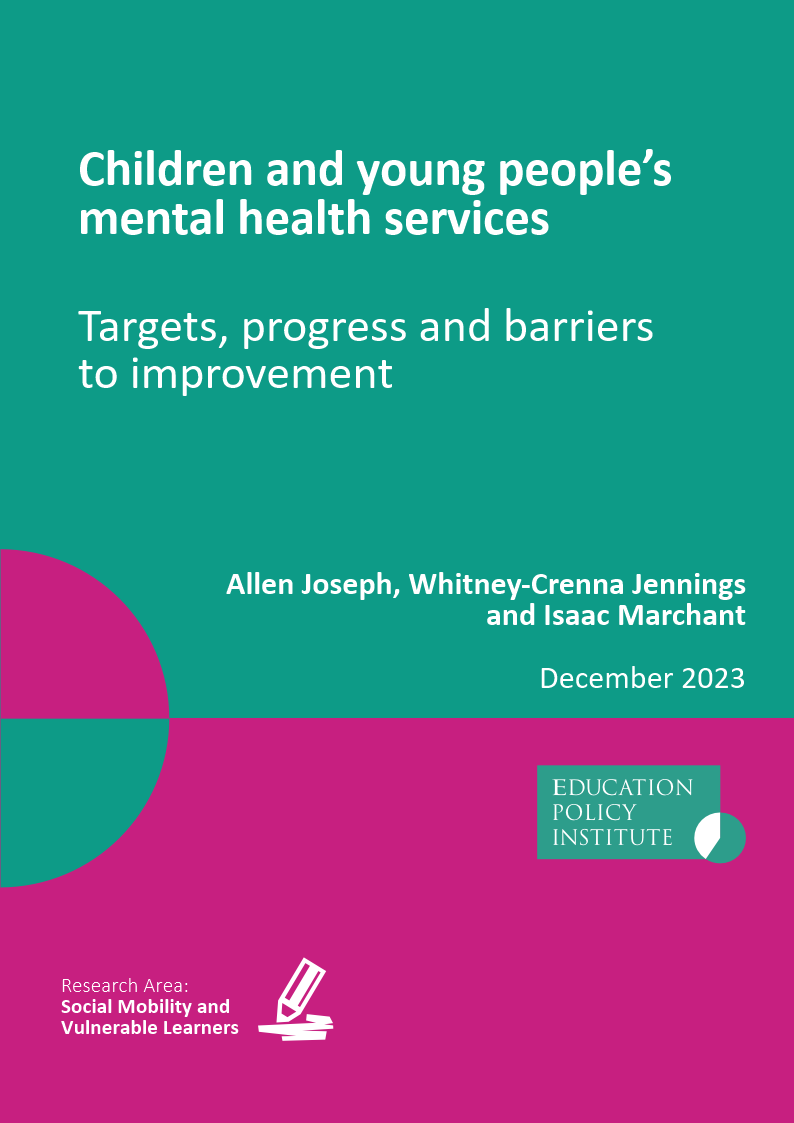This report assesses the progress that has been made against government targets to improve children and young people’s mental health services since 2015.
Whilst some progress has been made in improving service provision, EPI finds that this has been outpaced by rising demand for services, with concerning levels of variation in the services available across England and a need for better data and greater transparency regarding service availability, quality and outcomes.
Informed by these findings and advice from advisory groups, EPI makes a range of policy recommendations, providing a blueprint for a future government’s strategy to improve children and young people’s mental health services.
Alongside the report, EPI has also launched an online ‘policy tracker’, which can be found here.
The report finds that:
- Out of 135 government policies relating to children and young people’s mental health, just 36 per cent had been fully implemented. Some action had been taken for 58 per cent and for 6 per cent, it was unclear whether any progress had been made. Most policy plans that have been implemented are related to improving processes rather than the experiences and outcomes of young people with mental health needs.
- Mental health provision for young people continues to vary considerably across the country, according to new data collected. This includes support following a mental health crisis and whilst on a waiting list for clinical treatment; the ages at which children and young people’s mental health services are accessible; and the range of evidence-based therapeutic treatments on offer.
- Whilst positive changes to provision for young people have been made, this progress has been outpaced by rising need. With a significant increase in the number of children and young people accessing services since the pandemic, government targets are now outdated and based on historical data.
- There is still too little focus on prevention and early intervention, with the government adopting a largely reactive approach based on improving service provision for the most acute cases.
The report recommends that:
- The government should design a policy programme which reflects the evidence on drivers of, lifelong mental health issues and the importance of intervention in childhood and adolescence.
- The government should update their mental health workforce strategy and implementation plan, with a ten-year mental health workforce recruitment and retention strategy including clear plans for funding, delivery, and accountability. To support this, DHSC should explore introducing a statutory CYPMH workforce census.
- NHS England and the Department for Health & Social Care must continue to focus on increasing access to – and eliminating barriers to accessing – mental health services for children and young people.
- NHS England and the Department of Health and Social Care must work to improve mental health data and transparency, so that services can be more effectively planned and commissioned.
- The government should gather data on early intervention and third sector services including availability of these services in local areas, access, and spending.
- Future government policy plans should have greater clarity and internal consistency, accompanying implementation strategies, and accountability mechanisms. Policy commitments should be accompanied by implementation and measurement strategies, clearly laying out how and when they will be met.
- All secondary schools should have access to a mental health support worker, with the skills and training to deliver evidence-based, high-quality interventions.
- The Department for Education should aim to ensure all teachers have the knowledge and skills to recognise and respond to mental health needs and age-appropriate programmes to help pupils and teachers discuss mental health should be developed and expanded.
- The government should introduce a strategy to reduce child poverty and expand access to high quality early support services for families in all areas.
Read the full report here.

This report has been kindly funded by the Sequoia Trust.

